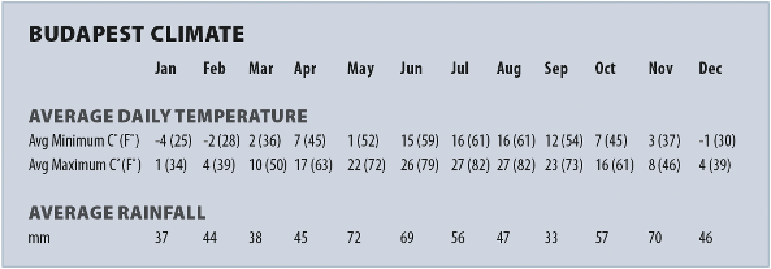Travel Reference
In-Depth Information
ten lingers well into September, and even October. This makes the city a perfect time to visit
for the prestigious Spring and Autumn Festivals respectively.
Costs
Although Budapest is not the bargain destination it once was, it's still very good value, espe-
cially when compared to cities in Britain, France or Italy, for example.
If you're not staying in a hostel, the main drain on your resources will be hotel accommod-
ation; while rates fluctuate wildly according to season and demand, expect to pay around €60
a night for a double room in a three-star hotel, and somewhere In excess of €100 for a four-
star. A two-course lunch or dinner with a glass of wine in one of the better restaurants should
set you back around 5500Ft (€18). Public transport is cheap, with a one-day pass covering all
modes of transport costing 1650Ft (€5.50).
Foreigners are easy targets for overcharging, so it is always worth checking the price of
what you are buying (“
Mennyibe kerül
?” means “how much is it?”). One hidden extra is the
ÁFA or sales tax (the equivalent of VAT in Britain) of up to 25 percent, which can hike up
the cost of rental cars and hotels, for example: look out for the phrase “
az árak nem tartal-
maznak Áfát
”, meaning “prices do not include tax”. There is also a three percent tourist tax
onhotelprices,anditisworthcheckingthatbothtaxesareincludedinanypricesquoted.The
simplest way to ask is “
Ez az ár bruttó vagy nettó
?” - “Is this price with or without tax?”.
Crime and personal safety
Hungary is one of the safest European countries, and there's little reason to worry about your
personal security while visiting. Violent crime is extremely rare, though petty theft is com-
mon, with downtown Budapest a prime area for pickpocketing and scams directed at tourists,
such as luring them into rip-off restaurants. It is also advisable not to take valuables to the
baths, as lockers are sometimes targeted by thieves.

